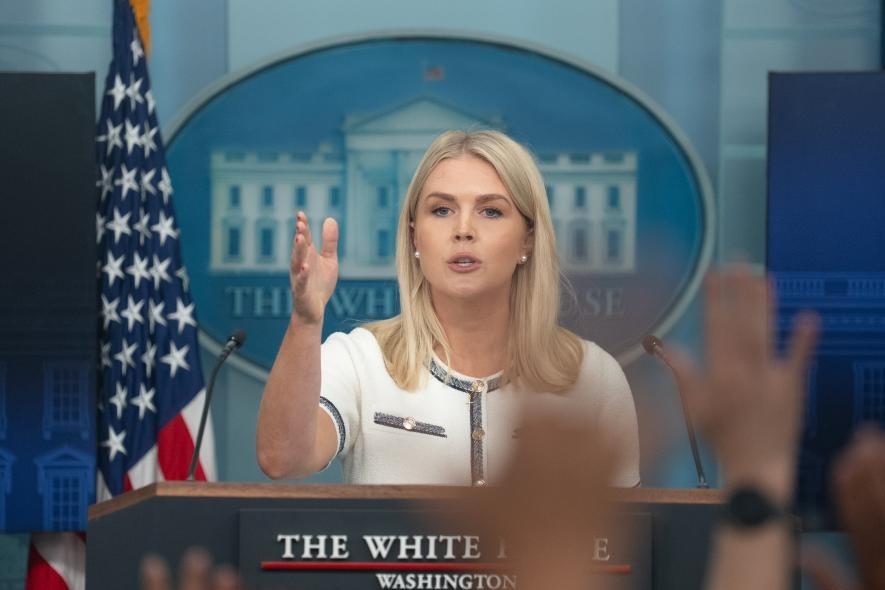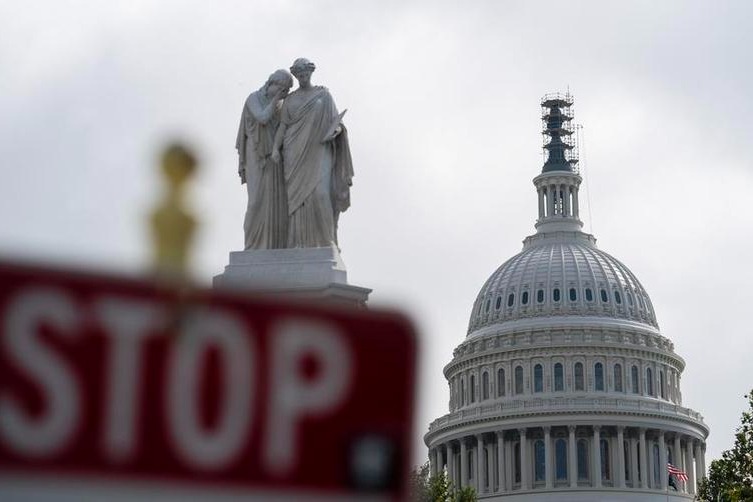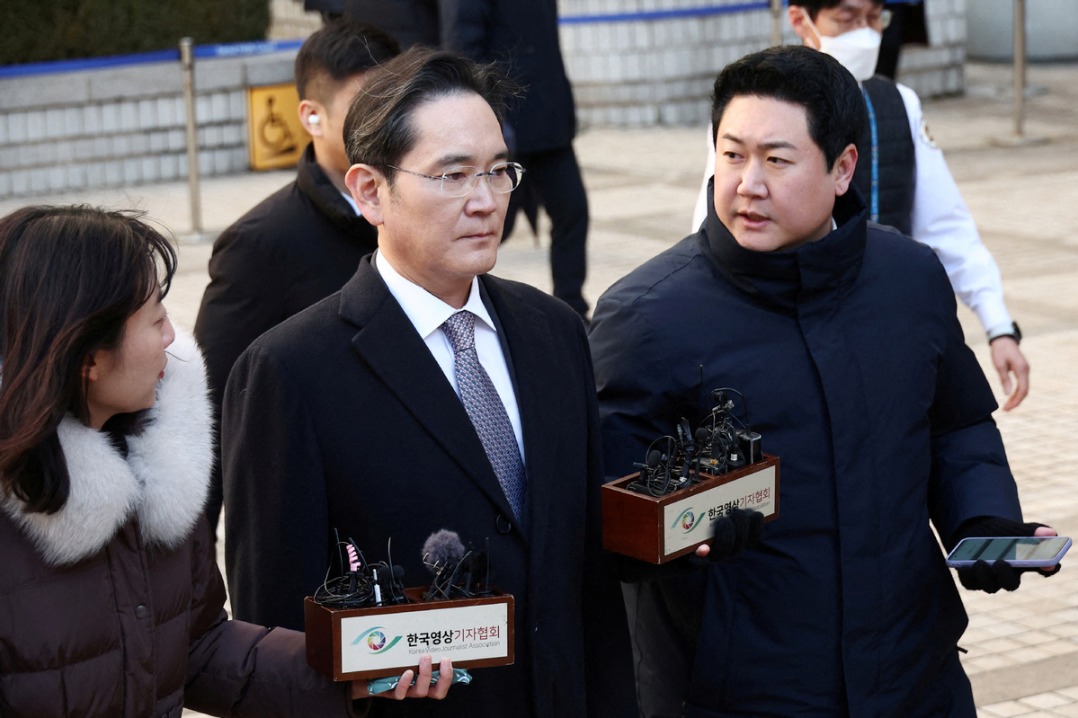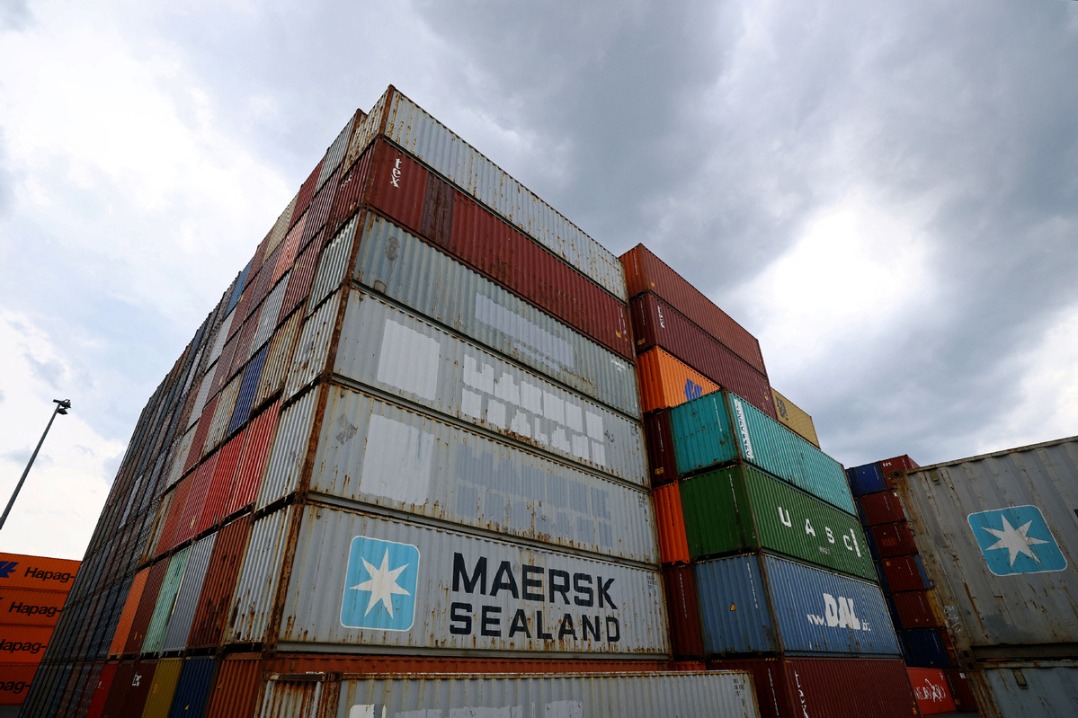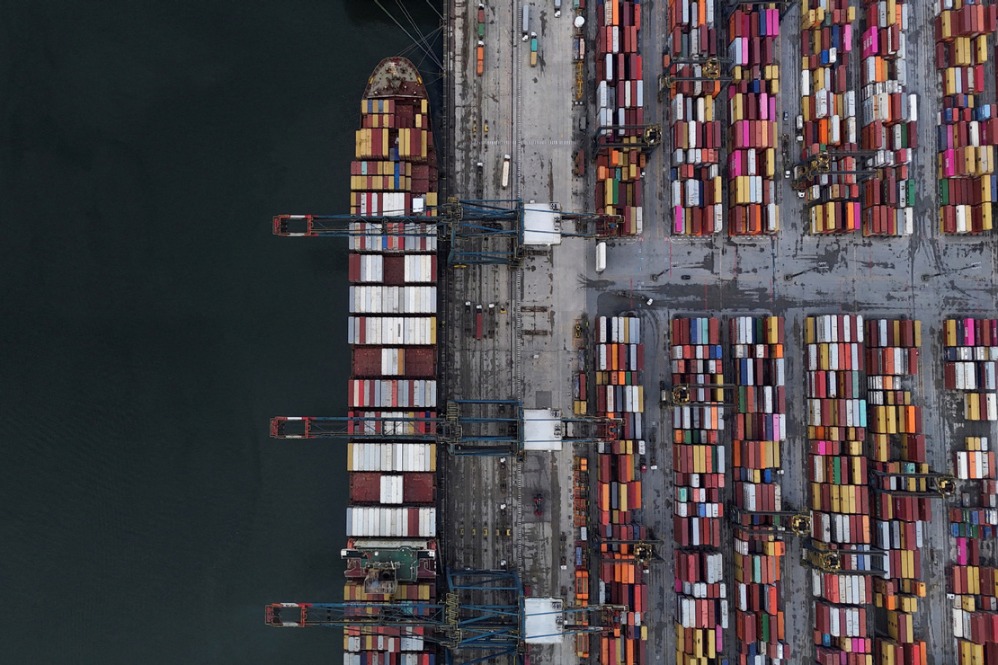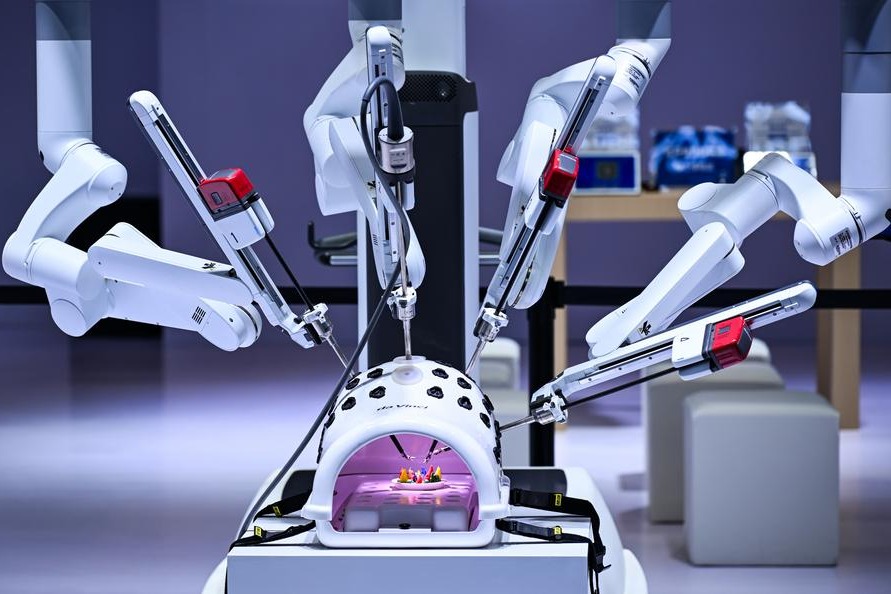Chinese people's heroic victory praised

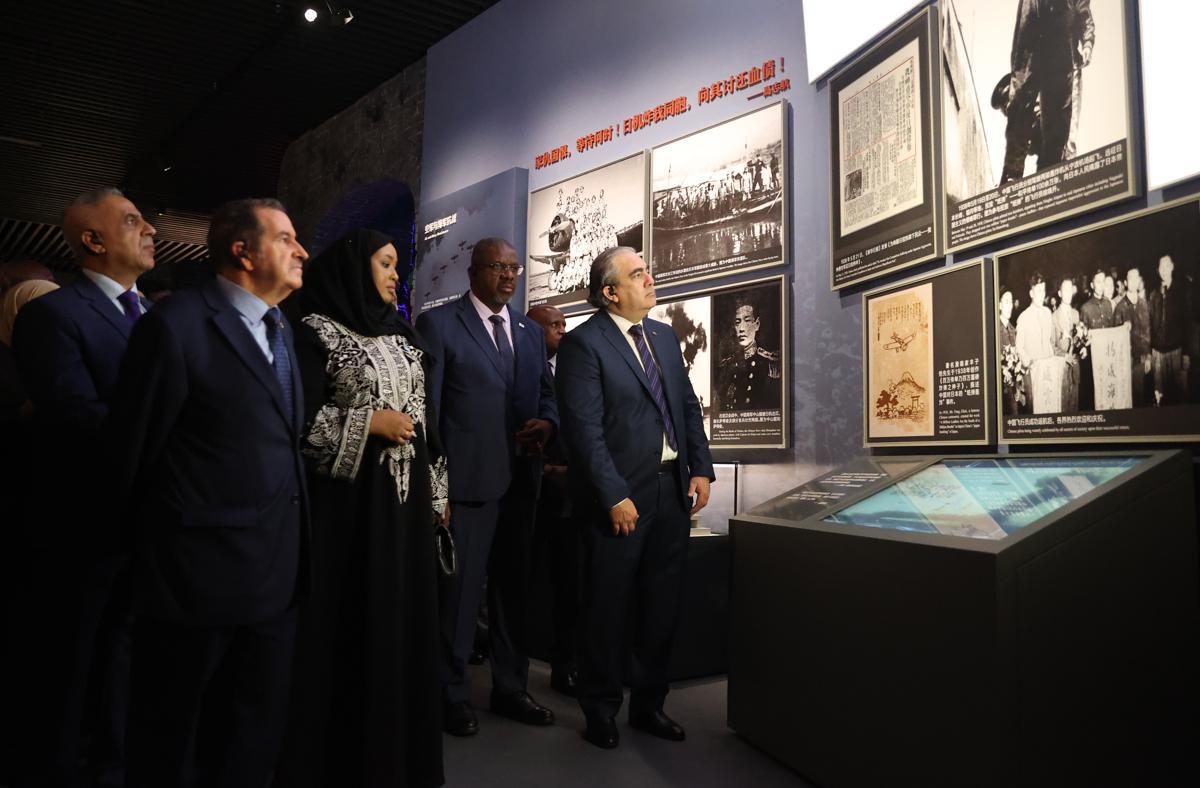
Standing amid archival photos, wartime relics and large-scale theme videos, foreign diplomats on Thursday paid tribute to the Chinese people's heroic struggle during World War II at an exhibition in Beijing marking the 80th anniversary of the victory in the Chinese People's War of Resistance Against Japanese Aggression (1931-45) and the World Anti-Fascist War.
Bilal Mahmood Chaudhary, Pakistan's deputy head of mission in Beijing, listened attentively to an interpreter at the People's War section, who briefed the audience on how Chinese soldiers and civilians, led by the Communist Party of China, waged widespread guerrilla warfare behind enemy lines.
"This reflects the resilience, perseverance and strength of the Chinese nation. Whenever the country faces a crisis, the entire society unites to defend national sovereignty and territorial integrity against any attempt to subjugate them," he said.
Such a spirit continues to this day and is reflected in China's rapid development in recent decades, he added.
Chaudhary was among over 160 foreign diplomats from 112 embassies and 10 international organizations in Beijing who visited the exhibition, which offers a panoramic review of China's resistance against Japanese aggression and its role in the World Anti-Fascist War.
When Japanese militarists launched their full-scale invasion of China 88 years ago, the Chinese military and people initiated a whole-of-nation war effort that opened the main Eastern battlefield in the global war against fascism. Official data shows that the Chinese battlefield accounted for over 70 percent of total Japanese casualties during WWII.
China's resistance began the earliest and lasted the longest, with over 35 million military and civilian casualties, amounting for nearly one-third of the global losses during WWII.
Acknowledging China's wartime sacrifice, Honduran Ambassador to China Salvador Moncada said that China's role was "unique and very important".
"If they hadn't defeated the Japanese forces in China, Japan would have done much more damage than they did," he said.
Amid the turbulent and complex international landscape, China has on many occasions reiterated that commemorating the victory in the Chinese People's War of Resistance Against Japanese Aggression and the World Anti-Fascist War is not about prolonging hatred, but about drawing lessons from history, looking toward the future, and working together to uphold and cherish peace.
At the exhibition, Bolivian Ambassador to China Hugo Siles said that the display was a powerful reminder of China's indispensable contribution to the defeat of fascism.
"The suffering endured must never be forgotten. Those painful scenes must remain in our collective memory," he said, adding that the most important lesson is that force, violence or war must never be used to resolve conflicts.
He praised China for transforming historical trauma into a source of unity and strength, and noted that its steady pursuit of peaceful development offers a meaningful example for the world.
In a signed article published ahead of his attendance at the celebrations in Moscow, Russia, in May to mark the 80th anniversary of the victory in the Soviet Union's Great Patriotic War, President Xi Jinping called for the international community to learn from history, safeguard the post-war international order, defend international fairness and justice, and resolutely oppose all forms of hegemony and power politics, in order to build a better future for all.
Moncada, the Honduran ambassador, echoed Xi's remarks and expressed the hope that peace would prevail in an increasingly complex world.
"In terms of peace, China is showing every day that it is actively working for peace in the world, in every single area where there is conflict," Moncada said. "We should together pursue friendship, synergy and positive engagement rather than confrontation."
Moncada stressed the importance of the United Nations, which celebrates its 80th anniversary this year. "The principles on which the UN was founded should be followed by all," he said. "We should fight for multilateralism and equal representation for all nations in the world, on the basis of mutual respect and understanding."
Chaudhary, the diplomat from Pakistan, noted China's emphasis on win-win cooperation and shared prosperity, saying that these values form the foundation of China's approach to global development.
China's support for multilateralism and the UN-centered international system gives "a sense of hope for developing countries to partner with China and strengthen the global development endeavors", he added.
The exhibition, titled For National Liberation and World Peace, which opened on July 7, is being held at the Museum of the War of Chinese People's Resistance Against Japanese Aggression, located near Lugou Bridge, where Japanese troops attacked Chinese forces on July 7, 1937.
The exhibition, divided into eight sections with a total area of 12,200 square meters, displays 1,525 photos and 3,237 artifacts.
















